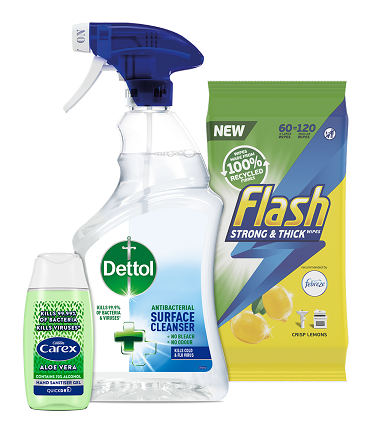DCS Group, the UK’s leading distributor, has kicked off a campaign to help wholesalers and retailers stimulate sales within today’s challenging market.

 DCS Group held an insight webinar on 4 February 2021, which was hosted by DCS’s Head of Category and Insight, Matt Stanton. The webinar was the fifth category insight webinar to be held by DCS and was joined by 100 attendees including DCS’s retail, wholesale, convenience, discount and pharmacy customers and suppliers.
DCS Group held an insight webinar on 4 February 2021, which was hosted by DCS’s Head of Category and Insight, Matt Stanton. The webinar was the fifth category insight webinar to be held by DCS and was joined by 100 attendees including DCS’s retail, wholesale, convenience, discount and pharmacy customers and suppliers.
The webinar outlined how shoppers have reacted to the latest lockdown, how these reactions line up with the broader shopping trends that emerged in 2020, and what it all means for wholesalers, retailers and suppliers.
“People in the UK have generally been supportive of the current lockdown measures, with the vast majority of Brits saying that they agree with the latest measures. Despite positive feelings about the level of progress in general, there is a lot of frustration as the pandemic continues to have a negative impact on many households,” Stanton said. Stanton explained how a pronounced split had arisen between households with more disposable income, having encountered fewer expenses during lockdown, and those with severe financial concerns.
“Despite the negative impacts of the pandemic, people are settling into lockdown life, developing coping mechanisms and becoming better-practiced. Many are more health and wellness conscious, both physically and mentally.”
As a result snacking has increased through the lockdown periods, but in the convenience channel healthier snacking alternatives have grown faster than traditional confectionary [IRI]. Looking natural has become more ‘natural’ for people – in early lockdown, many saw videocalls as an excuse to glam up, put on make-up, but as time goes on, and with relatively small, low-resolution video images on video calls, there is less need for many to do so. People have learned how to create a ‘healthy home’ environment, optimising the space around them to take the stresses and frustrations out of spending more time at home.”
Shoppers have settled into routines with their cleaning habits too. “At the start of the first lockdown, search traffic for cleaning and hygiene products went through the roof. People were looking for advice, reviews, and homemade solutions. It was a similar story with things like homemade face masks. These categories are still in huge growth year-on-year, but it has now become routine. People know exactly what they are looking for and they expect to find these products on the shelf,” Stanton explained, providing a clear call to action for retailers.
With grocery shoppers making fewer trips, retailers have the opportunity to grow share of larger top-up shops, and also to give shoppers an extra reason to choose their store over a competitor. “Convenience stores and discounters could claim a whole basket from a competitor just by stocking one extra item a shopper needs.” Destination stores that have remained open during lockdown, such as garden centres and DIY retailers, have attracted visitors looking for a safe and reasonable opportunity to leave the house. “Even if they are not part of your core business, stocking more essentials such as cleaning products, handwash, personal care and medicines, strengthens people’s excuse for visiting your store,” Stanton said.
Stanton also explored the importance of online retailers’ abilities to differentiate from the competition. He highlighted how good stock availability and comparable prices are a hygiene factor that shoppers take for granted, and that the key differentiator is fast, free delivery.
Trends across the household, health and beauty categories have been mixed throughout the pandemic. “In the total UK market, categories such as household cleaning, personal hygiene, paper, painkillers and anti-allergy remedies have grown significantly, whilst some other areas of personal care and medicines are in decline. However, there are pockets of growth for those who are well-prepared,” said Stanton, presenting data showing how the independent convenience channel is performing ahead of the total market [Nielson, IRI]. “There are growth opportunities for the majority of businesses if they stock the right range,” he said.
“Our message on household cleaning is to stock a full range, or at least the basics if it is an add-on to your core business. Multipurpose cleaners have grown by +32% [Nielsen]. Prioritise antibacterial products and create a dedicated antibacterial display if you have space,” Stanton recommended.
“In a recession, the big FMCG brands grow faster than own label, despite the latter having the lower price point. It’s even more evident in household cleaning, where product effectiveness is crucial – shoppers want to guarantee the product will kill the virus.” [Kantar]
Stanton recommended stocking Flash and Dettol wipes, multi-surface cleaning sprays from Dettol, Flash and Cif, Mr Muscle drain unblocker, Viakal limescale remover, Cillit Bang mould and mildew remover, Domestos bleach, Harpic toilet cleaner, as well as leading disinfectant brands Zoflora and Dettol.
Within Personal Care, Stanton highlighted washing and bathing as a crucial category for retailers to stock, particularly with many more people self-pampering at home through lockdown.
Stanton concluded by reiterating that DCS Group offers impartial category and ranging advice for wholesalers, convenience retailers, discounters, high street retailers, online retailers, and foodservice and pharmacy distributors. In this dynamic environment with information from all shopping channels at their fingertips, DCS can help customers stock the best ranges to fulfil consumer needs and maximise sales.
The 2021 edition of the DCS Category Insight Guide was published last week. It is aimed predominantly at the independent channel, and contains 150 pages of detailed advice category and ranging advice.




Comments are closed.